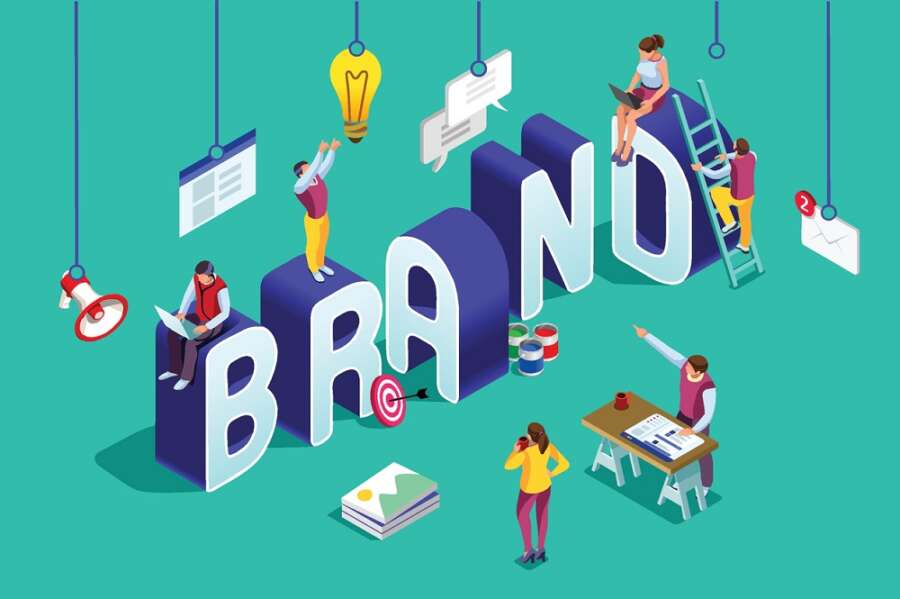
Licensing: The best brand strategy you never heard of

By Ella Haynes, event director, Brand Licensing Europe
If Barbie has proved anything this summer, it’s that licensing is not only a brilliant revenue driver for brands but, with fandom powering the consumer products market like never before, it’s also crucial to brand positioning.
Licensing – AKA brand extension – lets property owners maximise the reach and awareness of their IP, attract more customers and new customer demographics, expand your brand into new territories, build customer loyalty and enhance their credibility.
Renting out your brand on license to manufacturers, retailers – and event to other brands through collabs – to create a whole new raft of consumer products featuring YOUR logo can be gold dust and significantly boost product sales for decades if done well. Just look at Nike x Michael Jordan = Air Jordan and the $5.1 billion in sales that collaboration generated in 2022; nearly 40 years after the initial deal was signed.
Licensing is such a revenue booster that sales from global licensing at retail outperform general retail sales year after year. In 2022, trade association Licensing International revealed that global sales of licensed merchandise and services reached $340.8 billion in 2022, an 8% increase compared to 2021 when general retail sales were projected to rise by just 3.3%.
What’s driving the growth of the licensing market?
During 2022, the licensed property and product categories that performed best were those bouncing back from being smacked down by Covid. Music (+26%), sports (19%+), location-based entertainment (67%) and non-profit (25%) all suffered from lack of audiences and footfall during the global lockdowns. Pet products (39%) also did well thanks to – rather than despite – Covid, given the increase in pet ownership during the pandemic: According to Forbes, 78% of pet owners acquired their pets during Covid.
Why has sports licensing rocketed?
If we looks at sports licensing as an example case, it’s been interesting to watch this category grow over the years as more and more sports clubs, tournaments and associations have gradually cottoned on to the power of licensing despite replica football shirts hitting the market in 1959.
At Brand Licensing Europe, we think there are four key drivers behind the growth of this category. While number one is reasonably specific to sport, 2, 3 and 4 can be applied pretty universally to all categories:
- The realisation for a need to reach fans beyond the stadium. Never more so than during Covid was there a need for sport to reach fans beyond the stadium when so many sports were being played to empty stadiums. Clubs are now keen to nurture and protect this additional revenue stream just in case anything like Covid were to happen again.
- Stakeholder revenue recognition. We believe that more and more stakeholders are recognising the revenue potential of investing in a brand licensing department. Within football, we are seeing clubs work with bigger partners/ licensing agents such as AS Roma & IMG, Paris Saint Germain & Fanatics or even Real Madrid C.F. & Legends International.
- The need to grow loyalty beyond the core fans. The mainstream media has played an important role in building awareness of certain sports and expanding their reach beyond the core fans to a much wider base of appreciation. Online streaming services like Netflix and Amazon are promoting sports, tournaments and clubs like Formula 1, Naomi Osaka, Tour de France, Manchester City, 24h Le Mans, etc., with well-produced, appealing content that’s pulling in big audiences. This has undeniably created a whole group of new fans and allowed the clubs to attract new audience demographics, too, including more women and younger generations.
- An increase in brand collaboration allowing brands to position themselves at a higher premium: PSG & Air Jordan, Fred & Roland Garros, Liverpool & Converse, Walthamstow FC with its William Morris inspired replica shirts and walk out jacket, even Paramount collaborating with Tottenham Hotspur for Mutant Mayhem this summer.
Licensing benefits for brands
The example of Tottenham and the Ninja Turtles is a great example of how brands can use licensing to extend their brand equity beyond their natural market and into other areas, which is exactly what Richard Pink’s agency Pink Key Consulting does for global FMCG brands Kellogg’s and Pringles.
“You’d never get Kellogg’s or Pringles making a t-shirt, but we can do that [for them]. We manage that process and build the brand awareness for them, securing additional distribution channels they would never go to themselves,” said Richard Pink.
“We manage that whole process and build the brand awareness for them. That’s our role: to extend the brand from a commercial point of view and driving a revenue stream for them at the same time.”
Other great examples of FMCG licensing collabs are Primarks x Gregg’s, Minecraft x Pringles, Nails.INC x Fruit Loops, Marmite x Lynx – all absolutely brilliant examples of thinking outside the box and creating collabs with your target audience in mind – in these cases, Millennials and Gen Z – to secure valuable share of social voice.
Talking to millennials and GenZ
They also illustrate clearly how important authenticity remains for brands and that includes licensing deals. The 18-35 audience in particular wants to interact with brands that share their values and have a clear brand purpose. They want to see collabs and brand extensions embrace diversity respectfully. Even when these collabs aren’t direct revenue drivers they can be incredibly important in allowing brands to reinvent themselves, reach a mass audience, and also for PR in an age where values and purpose are increasingly influencing customer behaviour.
Top brand licensing tips to avoid tripping up
Whatever the size of your brand, licensing can extend its reach and revenue.
- Think big – and wide – your brand licensing programme should not be limited to your current retail categories or customer demographics. Quite the opposite.
- Your brand is your everything and partners should acknowledge that renting it from you comes with huge responsibility
- The finished products must be authentic, respectful, good quality and well thought out. They should ‘extend’ the power and appeal of the brand, not be simply opportunistic or a ‘label slap’.
- While licensing can deliver huge opportunities and benefits, it’s not without its risks. Always work with people you can trust and develop a genuine collaborative relationship with, and with manufacturers and retailers you believe in and who align value-wise to your brand, strategy and fans.
Author Bio:
Ella Haynes, event director, Brand Licensing Europe. Brand Licensing Europe takes place 4-6 October at ExCeL, London and showcases tens of thousands of brands that are available to license, introducing them to manufacturers and retailers to kick start conversations that will lead to the next generation of consumer products that fans will love. It’s free for brands and marketers to attend.


